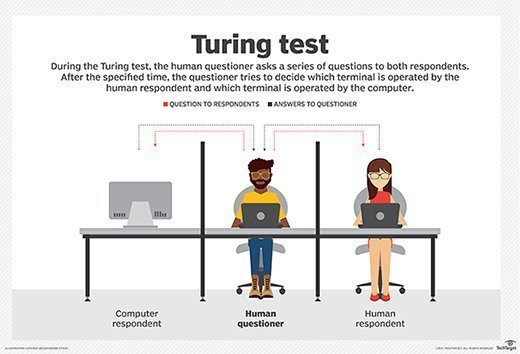UC Berkeley’s Alison Gopnik wins Rumelhart Prize in Cognitive Science

Alison Gopnik, a College of California, Berkeley, psychology professor whose analysis has reworked our understanding of how youngsters study and what they’ll educate us about ourselves, is that this 12 months’s winner of the celebrated David Rumelhart Prize in Cognitive Science.
Named for the famed psychologist and heralded because the Nobel Prize within the area, the award honors students who’ve made basic contributions to the theoretical foundations of human cognition. The Cognitive Science Society introduced the respect — which comes with a $100,000 money prize — on Thursday on the group’s annual gathering in Sydney, Australia.
“For years, I’ve mentioned this was the prize that basically counted to me,” Gopnik mentioned. “It’s the prize for establishing the foundations of cognitive science, which is what I’ve spent my complete profession attempting to do.”
Gopnik will formally obtain the award subsequent summer season on the group’s gathering within the Netherlands.
A UC Berkeley college member since 1988, Gopnik has researched how youngsters study to know their very own minds and the way, given restricted proof, they however make sense of the world round them. She was one of many first cognitive scientists to review “idea of thoughts” — how we come to know our personal minds and people of others. She was additionally the primary to point out how even babies unconsciously use refined computations, like Bayesian causal inference, to study in regards to the world and themselves.
Her work has challenged the longstanding concept that younger youngsters lack an understanding of others. And he or she’s argued that infants are a lot smarter than they’re given credit score for, taking in huge quantities of data, whereas adults deal with effectively utilizing what they already know to perform explicit duties.
“My complete profession since I used to be an undergrad actually has been about attempting to point out that learning youngsters may illuminate the essential foundational questions of cognitive science, not nearly how our minds work however how any thoughts may work,” Gopnik mentioned. “That’s what I’ve actually wished to do for my complete profession. So I really feel that it is a fantastic acknowledgment of that contribution.”
The David E. Rumelhart Prize was created in 2001 to honor Rumelhart’s foundational contributions to psychology and the research of neural networks which can be foundational to synthetic intelligence. The prize is funded by the Robert J. Glushko and Pamela Samuelson Fund. Glushko, who obtained a Ph.D. in 1979 beneath Rumelhart’s supervision, is now an adjunct full professor in cognitive science at UC Berkeley; Samuelson is a Berkeley Legislation professor.
“ The Rumelhart Prize honors the recipient, however Alison Gopnik additionally brings honor to the Rumelhart Prize. – Robert J. Glushko ”
“Alison Gopnik’s tutorial breadth in psychology, philosophy and linguistics is outstanding, and as well as, her non-academic writing and outreach have been extremely influential,” Glushko mentioned. “The Rumelhart Prize honors the recipient, however Alison Gopnik additionally brings honor to the Rumelhart Prize.”
Tania Lombrozo, a psychology professor at Princeton College and member of the choice committee, likewise praised Gopnik’s “huge affect” throughout disciplines spanning psychology and philosophy to synthetic intelligence.
“Her contributions should not solely deep however broad, showcasing how the disciplines of cognitive science can work collectively to present us a extra full image of intelligence and the thoughts,” Lombrozo mentioned.
Gopnik credit her curiosity in summary and complicated concepts along with her upbringing in a household of writers and thinkers. Her father was an English professor, and her mom was a linguistics professor.
“ We’re doing this analysis for the general public. Translating the analysis in a approach that individuals can perceive is actually vital. – Alison Gopnik ”
As her profession gained traction, she turned extra motivated to assist the world perceive the advances being made in youngster psychology and cognitive science. Along with tutorial papers, Gopnik is a longtime contributing author for The Wall Avenue Journal and The Atlantic. She’s additionally the creator of a number of books, together with the 2009 bestseller, The Philosophical Child: What Youngsters’s Minds Inform Us About Fact, Love, and the That means of Life. Amongst quite a few media appearances, she’s been interviewed by Charlie Rose, Stephen Colbert and Ezra Klein.
“We’re doing this analysis for the general public,” she mentioned, referring to her at-times dense work round youngster growth, philosophy and AI. “It’s typically technical work that’s exhausting for individuals to know. However that simply makes it extra true that translating the analysis in a approach that individuals can perceive is actually vital.”
Lately, Gopnik has additionally received lifetime achievement awards from the Affiliation for Psychological Science and the Society for Analysis in Youngster Improvement, in addition to the Carl Sagan Prize for Science Popularization.
“Over virtually 4 a long time, her contributions in developmental psychology, and significantly within the areas of youngsters’sreasoning and causal studying, have formed how cognitive scientists perceive pondering,” mentioned Rick Cooper, a cognitive science professor at Birkbeck, College of London and head of the Rumelhart Prize choice committee.
Recently, Gopnik has more and more centered on synthetic intelligence, which has its roots in cognitive science. It’s logical, she mentioned, as a result of if we would like techniques which can be going to study, it’s important to take a look at the most effective learners that we all know of within the universe: infants.
“Having a developmental psychologist who turns into a part of the Berkeley AI analysis group, that’s simply so Berkeley,” she mentioned. “That type of interdisciplinary journey could be very a lot what we’re all about as a college.
“And I believe the Rumelhart is one other recognition of that.”





